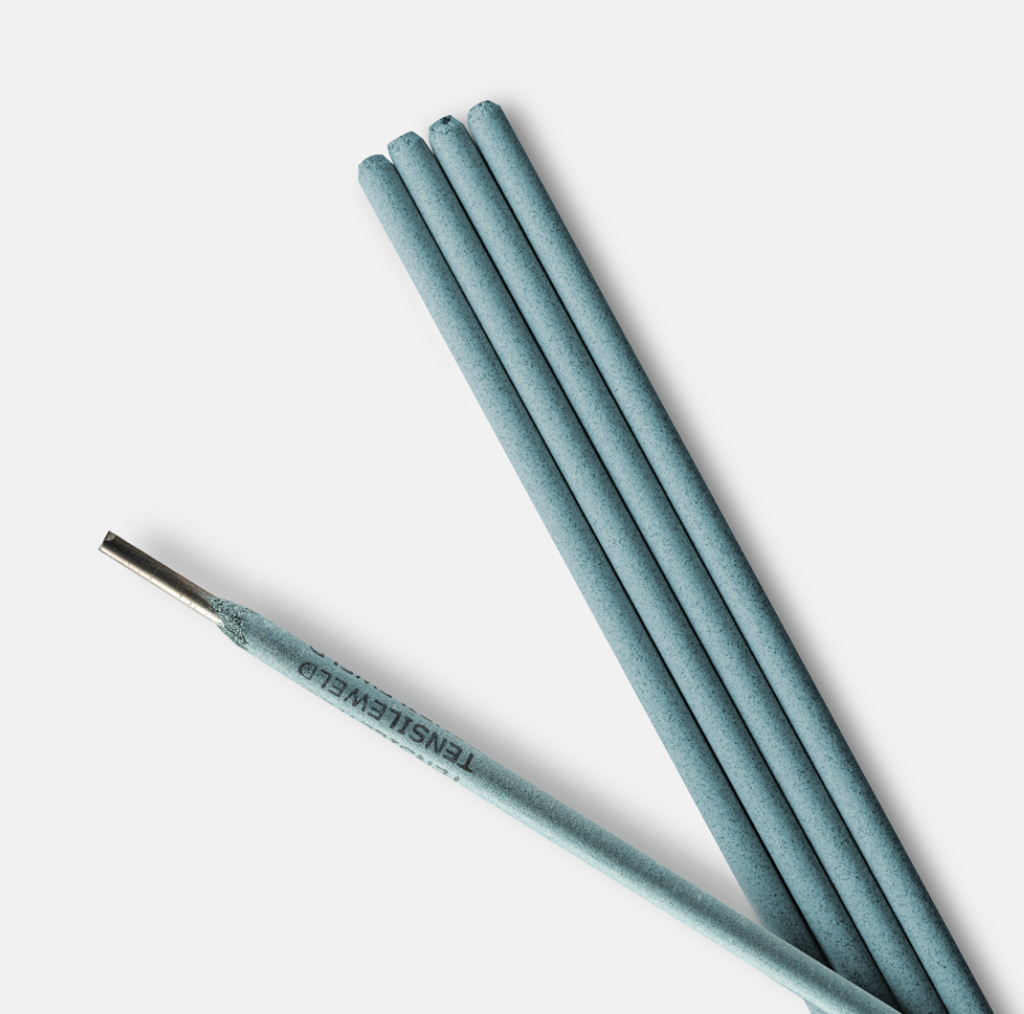Introduction & Overview
Tensileweld Electrodes are engineered for high-strength, porosity-free welds that can handle demanding environments. These electrodes are designed to work on both AC and DC current. They deliver weld deposits that are resistant to impact, abrasion, heat, and corrosion. They are particularly useful when welding dissimilar steels. They are also handy if the base metal’s alloy content is unknown. This makes them a versatile choice across a wide range of industries.
Key Features
The standout qualities of Tensileweld electrodes make them a go-to option for critical welding jobs:
- High Strength & Durability: Tensile strength ranging from 95,000 to 122,000 psi and yield strength up to 95,000 psi.
- Corrosion & Heat Resistance: Formulated to withstand harsh conditions.
- Versatile Applications: Works effectively on dissimilar steels, carbon steels, stainless steels, tool steels, spring steels, and more.
- Flexible Power Source: Suitable for both AC and DC reverse polarity.
- User-Friendly Technique: Short arc welding with stringer beads and peening is recommended for best results.
Pros & Cons
Pros:
- Produces strong, porosity-free welds
- Resistant to impact, abrasion, heat, and corrosion
- Compatible with a wide variety of steels and alloys
- Useful when base metal composition is unknown
Cons:
- Requires preheating (400ºF) for carbon and cast steels
- Recommended procedures may be less forgiving for beginners
Who It’s For
Tensileweld electrodes are designed for professionals and industries where weld integrity is non-negotiable:
- Mining and Heavy Industry: Underlayment of hardfacing alloys, rebuilding shafts, agitator blades, and gears.
- Aerospace & Pressure Vessels: Welding high-performance steels in critical applications.
- Maintenance & Repair: Field welders tackling mixed or unknown alloys.
What Makes It Unique
What sets Tensileweld apart is its ability to handle unknown or dissimilar steels without sacrificing strength or reliability. Many electrodes are designed for specific alloys. However, Tensileweld’s chemistry, which is high in chromium, nickel, and molybdenum, makes it versatile across a wide spectrum. This adaptability reduces the guesswork when the base material isn’t clearly identified.
Buying Tips
When selecting Tensileweld electrodes:
- Choose the correct diameter for the job (3/32”, 1/8”, 5/32”, or 3/16”).
- Use flat position amperage ranges for best control (65–230 amps depending on size).
- Preheat thicker or carbon steels to avoid cracking.
- Keep the work area clean and beveled for maximum penetration and weld quality.
Conclusion
Tensileweld Electrodes provide welders with a high-performance, all-purpose solution for tackling tough jobs across diverse industries. They deliver strong, durable welds on dissimilar or unknown steels. This makes them an invaluable tool for anyone who prioritizes strength and reliability in welding.
Note: We may earn a small commission from Amazon affiliate links at no additional cost to you.
- 10 LB Package – Tensile Weld 3/32″
- 3/32″ Stick Electrode
- Tensile Strength (psi) 95-122,000
- Yield Strength (psi) 87-95,000
- AWS A 5.4 / ASME SFA 5.4
Last update on 2026-01-19 / Affiliate links / Images from Amazon Product Advertising API
- 10 LB Package – Tensile Weld 1/8″
- 1/8″ Stick Electrode
- Tensile Strength (psi) 95-122,000
- Yield Strength (psi) 87-95,000
Last update on 2026-01-19 / Affiliate links / Images from Amazon Product Advertising API
- 10 LB Package – Tensile Weld 5/32″
- 5/32″ Stick Electrode
- Tensile Strength (psi) 95-122,000
- Yield Strength (psi) 87-95,000
Last update on 2026-01-19 / Affiliate links / Images from Amazon Product Advertising API



Leave a Reply